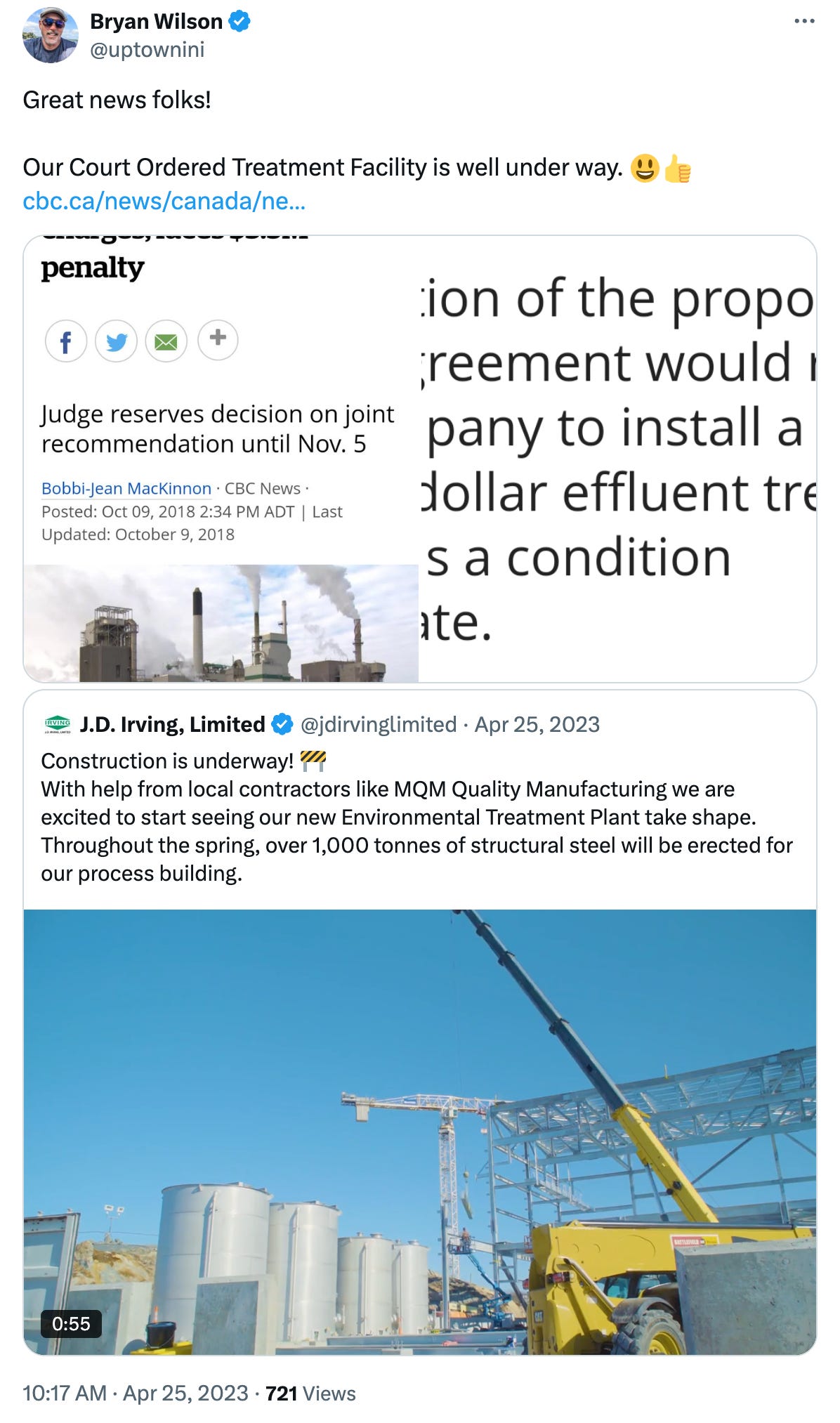West Side Industry Growth Must Come With Community Benefits
A $1.1B industrial project is coming to the West Side, but where are the benefits for its host neighbourhood?
Saint John is being asked to approve JDI's $1.1B NextGen project, yet the proposed community benefits fall far short of what this neighbourhood deserves. The latest proposed expansion promises significant economic benefits according to the company: new jobs, increased tax revenue, and environmental improvements. These could be great for our region.
But that's exactly why we need to ask: why isn't the host neighbourhood being offered benefits that match this scale of investment?
We know it can be done - in 2006, Emera provided what would be nearly $8 million in today's dollars as a community benefits package to Saint John alone for their $350 million pipeline project, which ran 145 kilometers through multiple communities. That investment created lasting improvements Saint Johners enjoy today in Rockwood Park. If Emera could provide that level of benefits to just one community along their pipeline route, what should we expect from JDI's $1.1 billion expansion that impacts our host neighbourhood exclusively?
The Hidden Price of Progress
When major industries expand, they rarely shrink back. Each project brings permanent changes to the neighbourhood landscape. The latest proposal includes converting part of Wolastoq Park into a corporate-only parking lot - this coming after JDI recently demolished the historic Simms brush factory to expand their existing private parking lot across the street.
While the park itself was established in 2004, it sits on land that has profound historical and cultural significance. As the Wolastoqiyik (Maliseet) people's name indicates - meaning 'the beautiful river' - this location has been significant for centuries, offering some of the best views of the Reversing Rapids and serving as an important site for both Indigenous and settler history.
The park was created to preserve public access to this significant space after the former Centracare facility was demolished. While JDI maintains they're preserving the "most utilized" areas of the park, this misses a crucial point: all public space has value, and once it's gone, it's gone forever.
"The neighbourhood is essentially being asked to give up public space permanently to solve a private company's parking problem."
What's Missing from the Equation
JDI promises substantial benefits to industry and the broader region: increased production capacity, jobs, and economic spinoffs. But even these deserve scrutiny. The much-touted water treatment facility isn't a voluntary community investment - it's a court-ordered requirement they're legally obligated to build.
As for the power plant, this 140MW facility's primary function will be converting wood chips to fuel for NB Power - and for perspective, the similar Colson Cove facility employs just 95 people while outputting nearly seven times more power than this JDI boiler project.
What's notably absent is proportional compensation for the host neighbourhood that will bear the daily impacts. If a $350 million pipeline project in 2006 could generate what would be $8 million in today's community benefits (about 1.5% of the project value), what should we expect from a $1.1 billion industrial expansion? Using the same modest proportion, we should be seeing at least $16.5 million in community benefits.
Instead, we're being offered a pedestrian overpass that primarily serves mill workers.
The Pattern We Need to Break
This fits a familiar pattern in our industrial communities: promised economic benefits are used to justify local sacrifices, without adequate compensation to the neighbourhoods bearing the direct impacts.
Yes, we welcome industry. Yes, we invite large projects. But not at the expense of our neighbourhood's vitality. When companies invest billions in expansion, surely they can invest meaningfully in the communities they impact.
"We're not saying no to industry - we're saying yes to responsible development that respects host communities."
The conversation itself is unbalanced - while corporations can blanket local media with full-page advertisements promoting their view, neighbourhood residents must rely on grassroots channels to make their voices heard.
When Emera needed to run infrastructure through our city, they understood that community benefits were part of being a good corporate neighbour. The precedent exists right here in Saint John. So why, for a project many times larger, are we being offered nothing more than a corporate parking lot and a pedestrian overpass that mainly serves JDI's own employees?
While JDI emphasizes its deep New Brunswick roots, the company's track record on community obligations - from environmental compliance to tax contributions - tells a more complex story. As Green Party MLA Kevin Arseneau pointedly noted about Irving's tax strategies, 'That's a lot of money that's not in schools, in our hospitals, on our roads, in our common good. Source: CBC News
A Call to Saint John Council
The NextGen project presents an opportunity for meaningful community investment. Yet the current proposal falls short of creating lasting value for the host neighbourhood. Saint John Council has a responsibility to ensure that billion-dollar projects deliver more than minimal concessions.
This project must balance economic growth with genuine neighbourhood benefit. As it stands now, it doesn't even come close. Please reject this proposal until you receive one that comes close to what we deserve.
For more information about the proposed project, visit JDI's Project NextGen website: nextgennb.com





Well done Brian! Saint John’s West side is fortunate to have you speaking up for them.